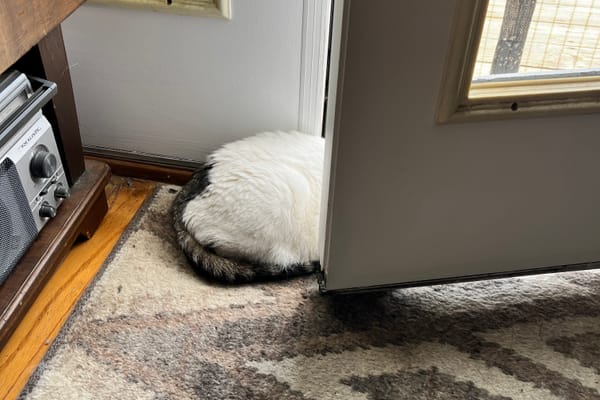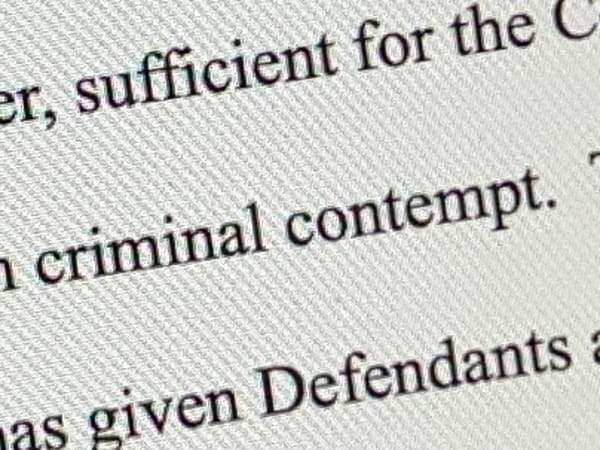"What you need is a home"
INDIGNITY VOL. 3, NO. 164
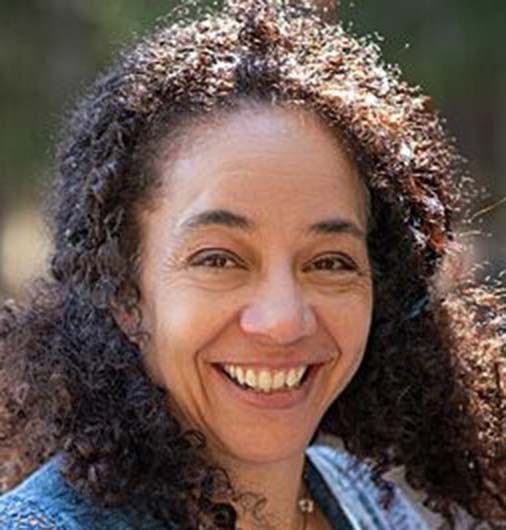
IN MEMORIAM DEP'T.

Lori Teresa Yearwood and the Art of Listening
LORI TERESA YEARWOOD died this week, killed by cancer. Lori was an extraordinary person and an extraordinary writer, but to say so feels like missing the point of her work. What Lori bore witness to, drawing on her own journey into and out of homelessness, was that none of us is extraordinary enough to stand safely apart from the dehumanizing forces in our society—and, simultaneously, that every person is an extraordinary person, if you're willing to hear what they have to say.
Lori had a remarkable and moving story to tell about herself, emerging from her mute and traumatized life on the streets of Salt Lake City to recover her voice as a writer. Always, though, her attention turned outward, to other people struggling with the same obstacles or worse ones. She knew firsthand how destructive and indifferent the system could be, but she never lost her incredulity at it, or her hope that things might change if everyone could just understand—really understand—something as simple as how badly every human being needs a good night's sleep.
For a series on Slate, Lori simply asked people how they slept last night, and listened to the stories that emerged; for Defector, she asked people to explain how they were dealing with some particular trouble in their lives. Through the Economic Hardship Reporting Project, she found ways to share what she'd learned with the readers of an assortment of other national publications.
Lori was a sharp observer of the absurdity around us, with the faith that reasoned and conscientious reporting and argument could do something about it. She was gentle and funny and passionate about her work, sensitive above all to the weight of trauma the world had placed on the people who trusted her to tell their stories.
In the brief existence of Hmm Daily, Indignity's predecessor publication, we had the good fortune of working with Lori to publish four of her reported essays:
[W]hat you need is a home and where you are is actually a list—a long, seemingly unending list for low-income housing...
In this hazy twilight, with no hefty rental agreements or sizeable security deposits, you live wherever you can afford to live. Some of the people I interviewed for this story crashed in the homes of friends and family. A few found someone willing to rent them a room for less than market rates. Others stayed in crowded homeless shelters or lived on the streets. I have done it all.
Throughout it all, none of us have known what the permanent home we long for is actually going to look like, or in what neighborhood it may be located. Depending on which of the lists I was on came through, and what that provider had, I could have been offered a unit in a 100 percent low-income housing complex, or a unit in a market-rate apartment building that sets aside a portion of units for low-income housing in exchange for tax credits. In other words, I could look forward to an apartment with cement floors overlooking a dumpster, or an apartment with granite countertops and a balcony peering out at the grand Wasatch Mountains.
Having been homeless myself, I can almost always spot a homeless person.
“No,” I told her, more sternly than necessary, “we do not have a phone for public use. You know that. I heard you ask the manager about that just the other day.”
As I stood at my register at Whole Foods—where specially grown oranges can cost $3 apiece and shoppers regularly arrive in Lexuses and BMWs—I enunciated each word in a willful desire to uphold a boundary between the rules, the rules that are supposed to keep everything in place, and the achingly familiar need of a human being who simply wanted to use a phone.
When I was first admitted to the Salt Lake County Adult Detention Center, and a jail employee handed me paperwork to fill out, I purposefully left the spot blank that asked for the name and number of an emergency contact. All of my relationships had disintegrated in the chaos preceding my homelessness; I had no safety net then, and I did not perceive myself to have any. I stared at her in silence.
“But what if you die here?” the woman said, from behind her glass window.
My life had become so unreal that I could not fully contemplate the question. I had just had my mugshot taken, was wearing a stiff cotton, navy blue jumpsuit, and was awaiting my sentencing. I was 51 years old. Until my homelessness, I had never been arrested.
I was packing my toiletries and clothes into a tiny surfer’s backpack and a plastic garbage bag, when she stepped off her path to talk to me.
“Excuse me,” she said softly. “Would you like a larger backpack—would that be helpful?”
I nodded.
“Then I will bring it to you tomorrow morning,” she said.
I doubted I would ever see her again; when you are homeless, you are homeless because any and all safety nets have broken from beneath you and you stop trusting. People say all kinds of things.
Still, I thought about how a bigger bag would make my life so much easier. I wouldn’t have to walk the streets with a garbage bag slung over my shoulder, worrying that its contents would poke holes in the plastic and then tumble onto the street.

WEATHER REVIEWS

New York City, September 28, 2023
★ The first feeble light was as strong as the light would get all day, as the clouds hung thick and rainless through morning and into afternoon. Scraping and tapping rang down from a crew doing brickwork on the nearest apartment tower. The combination of the darkness and the chill made going out discouraging, though the temperature outside was no worse than indoors. Toward dinnertime, umbrellas came out as the stasis broke, in the wrong direction.

EASY LISTENING DEP’T.
INDIGNITY MORNING PODCAST
Indignity Morning Podcast No. 156: Various forms of havoc.
Tom Scocca • Sep 29, 2023
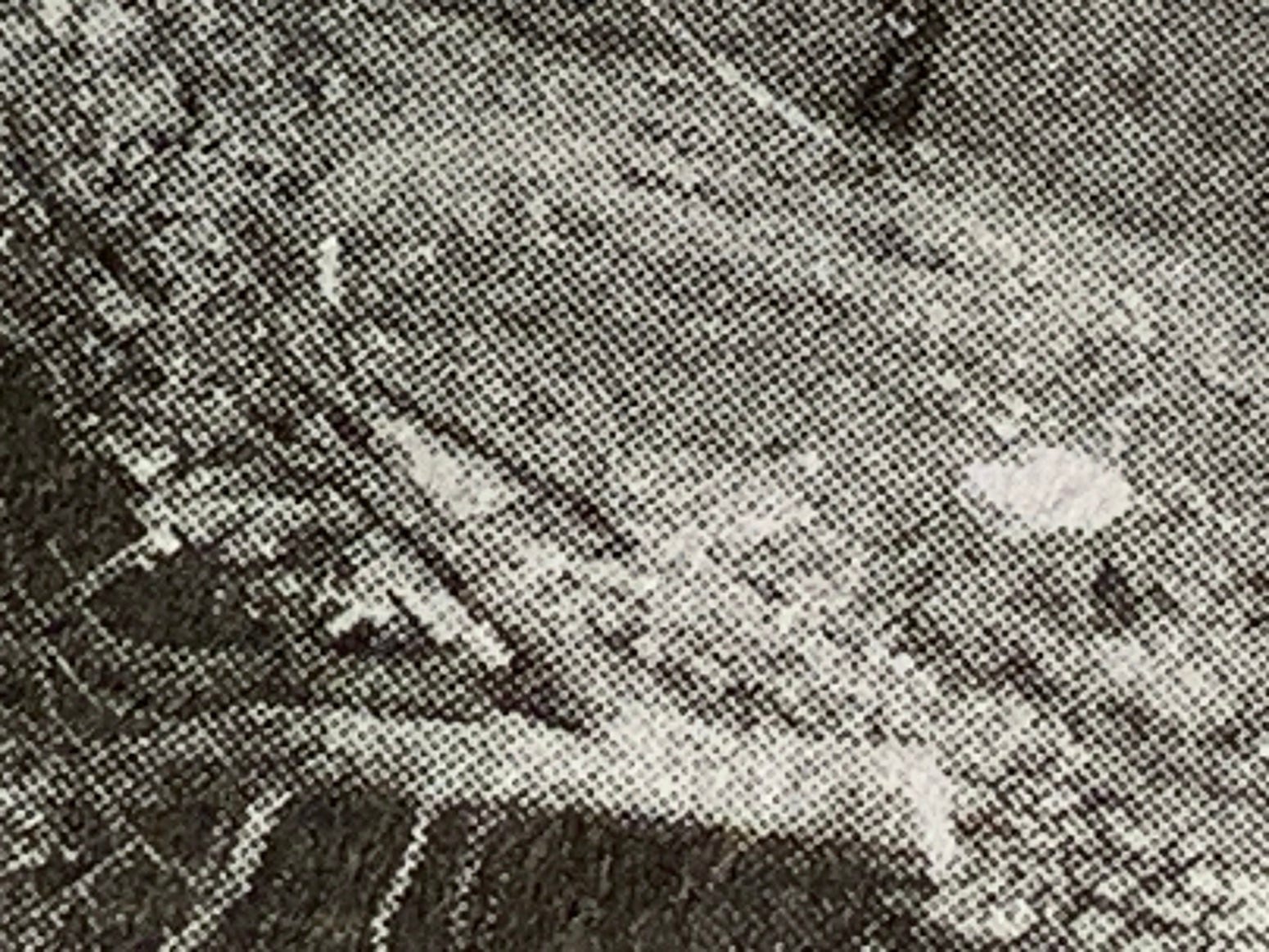
Listen now (5 mins) |
Read full story →

SANDWICH RECIPES DEP’T.
WE PRESENT INSTRUCTIONS for the assembly of select sandwiches from Practical Home Economics: 1245 Scientific Recipes, by Alice M. Donnelly A. B., University of Michigan, and Helen Cramp Ph. B., University of Chicago, published in 1919. This book is in the Public Domain and available at archive.org for the delectation of all.
ANCHOVY SANDWICHES
Pound the anchovies to a paste and mix with an equal quantity of olives stoned and finely chopped.
FIG SANDWICHES
Remove the stems and chop the figs fine. Put in a double boiler with a little water and cook until a paste is formed. Add a few drops of lemon juice; set aside; when cool spread on thin slices of buttered bread.
DATE AND FIG SANDWICHES
Wash equal quantities of dates and figs; stone the dates; add blanched almonds in quantity about one fourth of the entire bulk; then run the whole mixture through a meat chopper. Moisten with orange juice and press tightly into baking powder tins. When ready to use, dip the box in hot water; turn out the mixture; slice and place between thin slices of buttered bread.
If you decide to prepare and attempt to enjoy a sandwich inspired by this offering, kindly send a picture to us at indignity@indignity.net.

MARKETING DEP'T.
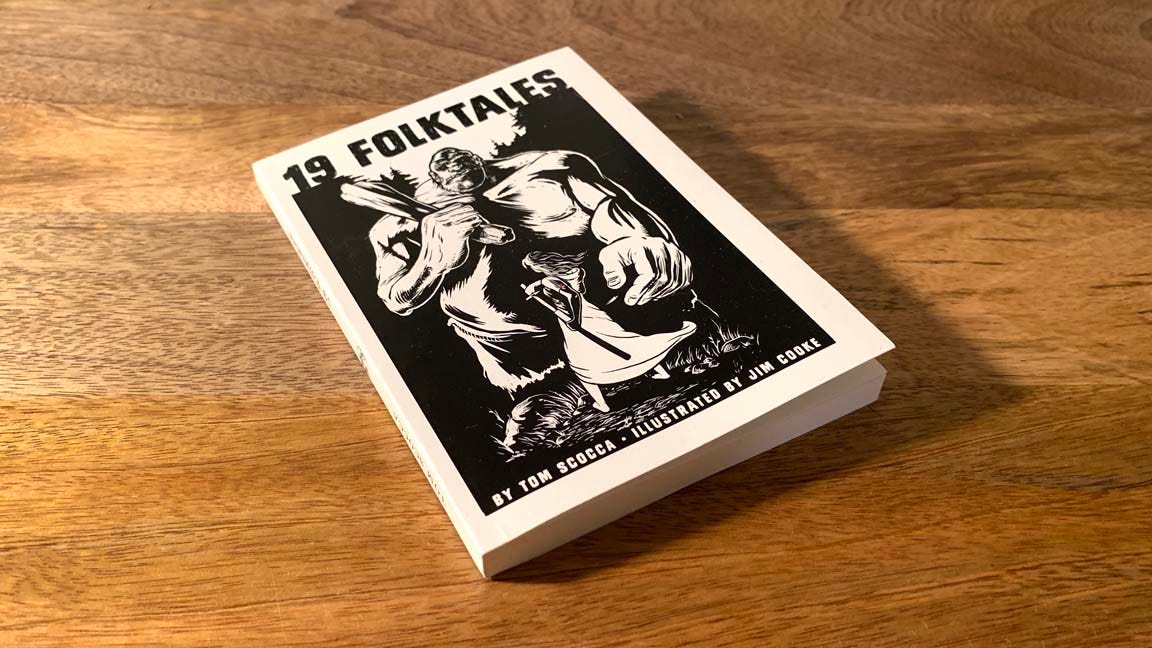
19 FOLKTALES collects a series of timeless tales of canny animals, foolish people, monsters, magic, ambition, adventure, glory, failure, inexorable death, and ripe fruits and vegetables. Written by Tom Scocca and richly illustrated by Jim Cooke, these fables stand at the crossroads of wisdom and absurdity.

HMM WEEKLY MINI-ZINE, Subject: GAME SHOW, Joe MacLeod’s account of his Total Experience of a Journey Into Television, expanded from the original published account found here at Hmm Daily. The special MINI ZINE features other viewpoints related to an appearance on, at, and inside the teevee game show Who Wants to Be A Millionaire. Your $20 plus shipping and tax helps fund The Brick House collective, a Publishing Concern featuring a globally diverse set of publishers doing their own thing, with interesting items and publications available for purchase at SHOPULA.
Thanks for reading INDIGNITY, a general-interest publication for a discerning and self-selected audience. We depend on your support!



